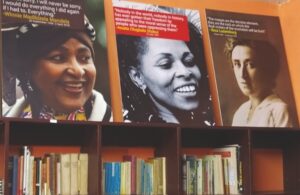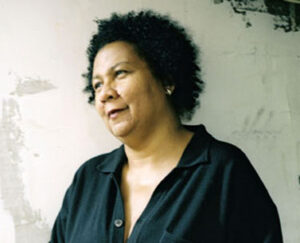Speech at the Conference of the African Studies Association of Africa (ASSA) at USIU on 25th Oct 2019
I had prepared to present a paper on Developing African Feminism by Recovering The Lost Histories of Women, but upon further reflection, I realized that the topic confines me to define feminism within my particular racial experience. And because I want this idea to develop into a class conscious debate, I have decided to speak instead as an African woman presenting on feminism globally.
Socially structured racial and gender discrimination is compounded by class. These three make all working and peasant women vulnerable. We must ask ourselves the question, ‘what is it that makes women and men globally feminist despite their difference in race and gender?’ It is because of their opposition to the imposition of capital over labour. Therefore there is no African worker or African peasant, but workers and peasants subdued by the yoke of wage labour and capital.
The title of my presentation is now ‘Struggle for Liberation through recovering the lost histories of African Women’
The struggle for liberation from the bondage of global capitalism and wage labour is a worldwide struggle. I want to avoid pigeonholing African realities and framing them from a racial lens because as I have said earlier, anywhere you go, the woman worker is the most exploited in the chain of labour.
What is liberation?
Viewed from a Marxist perspective, the question of liberation is a class struggle between the workers who do not own the means of production and the bourgeoisie who own the means of production and exploit labour for profit. This base structure yields a myriad of oppressions and discriminations. One of them is patriarchy. The women struggle for liberation is therefore a struggle to usher in a new society in which all are equal economically, socially and politically despite race or gender, a classless society.
Within this context of working class liberation, where does the Kenyan woman lie?
On 21st Monday, Ukombozi Library held a discussion about the life of Mukami Kimathi at the Kenya National Theatre. Mukami Kimathi has always been identified simply as the wife of Dedan Kimathi. Her story is lost and identified within her husband’s story. The book that was at the centre of discussion was Mukami Kimathi: Mau Mau Freedom Fighter by Wairimu Nderitu. Mukami was a brave women who fought in the Mau Mau class war against British imperialism and capitalism. What became clear is that the historical framing of the role of women within Mau Mau as simply bringing food and medicine to the male fighters in the forest serves patriarchy and it’s idea of who a woman should and should not be. Within this narrow context, even in liberation struggles , a woman’s ability is still dictated by her biology and confined to domestic work. Yet, we found out that Mukami wa Kimathi fought in the forest with her husband and even led her own battalion. It is not only her but many others including Field Marshall Muthoni wa Kirima as well and Wanjiku wa Thamweri, a brave 17 year old Mau Mau Freedom Fighter under General Kariba’s battalion who lost her life in the Mau Mau war.
The Mau Mau Monument in Uhuru Park also repeats this narrative as women are shown holding viondos passing food and the men holding the guns.
There is also the story of Muthoni Nyanjiru. She was a brave peasant woman who led a crowd of thousands in protest in front of Central Police Station for the release of their leader, Harry Thuku in 1922. The overnight vigil turned bloody when the British settler police and revellers at the Norfolk shot at the crowds of unarmed peasants and workers. Despite this brave act which got Harry Thuku released, the road in front of Central Police Station was named Harry Thuku Road and not Muthoni Nyanjiru Road. As activists, we are intensely lobbying to have the road renamed Muthoni Nyanjiru Road.
These are just a few examples.
For the past two weeks in preparation for Mashujaa Day, Ukombozi Library had been trying to dig up the stories of women in liberation struggles. All over Africa and the world, we found women like Winnie Mandikizela Mandela, Josina Muthemba Machel, Phila Portia Zandile, Rosa Luxemburg, Lilian Ngoyi, Dulcie September, Claudia Jones among others who inspired us.

 Portraits of Revolutionary women in the Ukombozi Library
Portraits of Revolutionary women in the Ukombozi Library
When it came to Kenya, our search greatly disappointed us. We could only find a few names. Wangari Maathai, Sara Sarai, Chelagat Mutai, Mekatilili wa Menza, Micere Mugo. The histories and struggles of women are still buried within the masculinities of men and history is being told from a patriarchal perspective. What we decided to do is to take on the project of recovering these lost histories. This project is ongoing and there is currently an exhibition at Ukombozi Library of women in the struggle for liberation. As a library, we are attempting to have an exhaustive archive of women’s contribution to the working class struggle.
To quote Ursula Le Guin,
“We will not know our own injustice if we cannot imagine justice. We will not be free if we do not imagine freedom. We cannot demand that anyone try to attain justice and freedom who has not had a chance to imagine them as attainable.”
Among other factors, the depoliticisation of woman has been made possible by the erasure of women from the fight for independence and liberation struggle. The lack of icons of freedom that show women as brave, courageous, satisfied and joyful greatly limits our ability to dream and imagine freedom and actively take part in the liberation struggle.
Through the project at Ukombozi Library, we will reclaim the history of women and inspire many women around the world in the struggle for working class liberation from Capitalism, neo-colonialism, imperialism and patriarchy.
Bell Hooks:
“As all advocates of feminist politics know most people do not understand sexism or if they do they think it is not a problem. Masses of people think that feminism is always and only about women seeking to be equal to men. And a huge majority of these folks think feminism is anti-male. Their misunderstanding of feminist politics reflects the reality that most folks learn about feminism from patriarchal mass media.”
“Think of all the women you know who will not allow themselves to be seen without makeup. I often wonder how they feel about themselves at night when they are climbing into bed with intimate partners. Are they overwhelmed with secret shame that someone sees them as they really are? Or do they sleep with rage that who they really are can be celebrated or cared for only in secret?”
Taken from various sources


